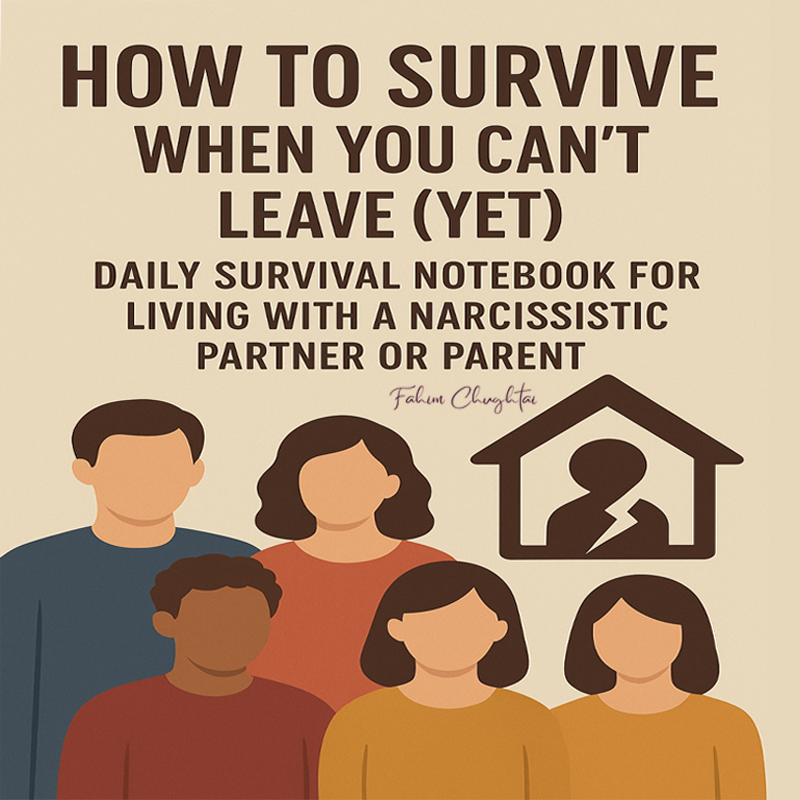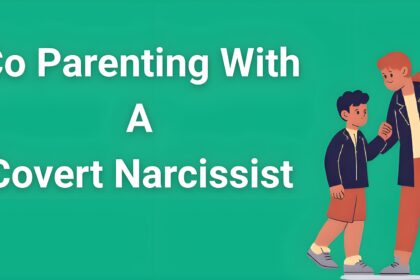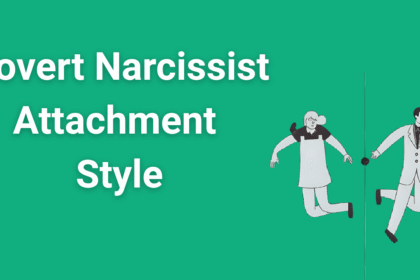Have you ever found yourself questioning your own sanity in a relationship? Walking on eggshells around someone who seems so charming to others, yet leaves you feeling confused and drained? If you’re asking “what’s a covert narcissist,” you might be dealing with one of the most insidious forms of psychological manipulation.
- The Hidden Truth About Covert Narcissism
- How Covert Narcissists Differ from Overt Narcissists
- 12 Hidden Signs You’re Dealing with a Covert Narcissist
- The Psychology Behind Covert Narcissistic Behavior
- Covert Narcissists in Different Relationships
- The Trauma Bond: Why It’s So Hard to Leave
- Breaking Free: Strategies for Dealing with Covert Narcissists
- Getting Professional Help and Support
- Protecting Your Children from Covert Narcissistic Abuse
- The Road to Recovery and Healing
- Frequently Asked Questions About Covert Narcissists
- Conclusion: Reclaiming Your Life and Power
Understanding what’s a covert narcissist could be the key to reclaiming your peace of mind and protecting your emotional well-being. Unlike their loud, attention-seeking counterparts, covert narcissists operate in the shadows, making their toxic behavior incredibly difficult to identify and even harder to escape.
The Hidden Truth About Covert Narcissism
A covert narcissist, also known as a vulnerable narcissist, possesses all the core traits of narcissistic personality disorder but expresses them in subtle, passive-aggressive ways. While overt narcissists demand attention through grandiose displays, covert narcissists manipulate through victim-playing, guilt-tripping, and emotional manipulation.
What makes understanding what’s a covert narcissist so crucial is that these individuals often appear as the “perfect” person in public. They present themselves as sensitive, caring, and even selfless, making it nearly impossible for others to believe they could be manipulative or abusive.
Am I Dealing With a Covert Narcissist — or Just Toxic Behavior?
The dangerous reality is that covert narcissists are masters of psychological camouflage. They’ve learned to hide their true nature behind a carefully constructed facade of humility and empathy.
How Covert Narcissists Differ from Overt Narcissists
When most people think about narcissism, they picture the classic overt narcissist: loud, boastful, and obviously self-centered. However, covert narcissism presents a completely different challenge.
Overt Narcissist Characteristics:
- Openly grandiose and attention-seeking
- Obviously arrogant and entitled
- Demands admiration publicly
- Uses aggressive manipulation tactics
- Easy to identify and avoid
Covert Narcissist Characteristics:
- Appears humble and self-deprecating
- Secretly entitled and superior
- Seeks sympathy and validation subtly
- Uses passive-aggressive manipulation
- Extremely difficult to recognize
This fundamental difference explains why relationships with covert narcissists can last for years or even decades before the victim recognizes the abuse pattern.
12 Hidden Signs You’re Dealing with a Covert Narcissist
Recognizing what’s a covert narcissist requires understanding their subtle manipulation tactics. Here are the key warning signs that often go unnoticed:
1. The Perpetual Victim Complex
Covert narcissists position themselves as perpetual victims of circumstances, other people, or life itself. They constantly share stories about how they’ve been wronged, misunderstood, or mistreated. This victim narrative serves multiple purposes: it garners sympathy, deflects responsibility, and manipulates others into providing care and attention.
2. Passive-Aggressive Communication
Instead of direct confrontation, covert narcissists use passive-aggressive tactics to express anger or displeasure. They might give you the silent treatment, make subtle digs disguised as jokes, or use guilt to manipulate your behavior. Their communication style leaves you feeling confused and off-balance.
3. Emotional Vampirism
Conversations with a covert narcissist always seem to revolve around their problems, feelings, and experiences. They have an uncanny ability to redirect any discussion back to themselves, leaving you feeling emotionally drained and unheard.
4. Hypersensitivity to Criticism
What’s a covert narcissist’s biggest trigger? Any form of feedback or criticism, no matter how gentle or constructive. They react with extreme defensiveness, withdrawal, or explosive anger when their behavior is questioned.
5. Grandiose but Hidden Fantasies
While they may appear modest externally, covert narcissists harbor secret fantasies of being special, superior, or destined for greatness. They often believe they’re misunderstood geniuses or unrecognized heroes.
6. Lack of Genuine Empathy
Despite appearing sensitive and caring, covert narcissists struggle with authentic empathy. They may mimic empathetic responses when it serves their purposes but fail to genuinely understand or care about others’ feelings.
7. Manipulative Guilt-Tripping
Covert narcissists are masters of emotional manipulation through guilt. They use phrases like “After everything I’ve done for you” or “I guess I’m just a terrible person” to control others’ behavior and maintain victim status.
8. Social Anxiety and Withdrawal
Many covert narcissists avoid social situations where they might not receive adequate attention or validation. This withdrawal is often mistaken for introversion or shyness but stems from fear of not being the center of attention.
9. Chronic Envy and Resentment
Covert narcissists harbor deep resentment toward others’ success and happiness. They believe they deserve better treatment and opportunities than they receive, leading to chronic bitterness and jealousy.
10. Boundary Violations Disguised as Care
They consistently overstep boundaries while claiming to care about you. They might read your private messages “out of concern” or make decisions for you “because they know what’s best.”
11. Inconsistent Personality
Covert narcissists often display dramatically different personalities in public versus private settings. They may be charming and helpful in public but cold and critical in private.
12. Gaslighting Through Self-Deprecation
They use self-criticism as a manipulation tactic, making statements like “I’m probably wrong, but…” or “I’m not smart enough to understand, but…” This false humility is designed to make you feel guilty for disagreeing with them.
The Psychology Behind Covert Narcissistic Behavior
Understanding what’s a covert narcissist requires exploring the psychological mechanisms that drive their behavior. Unlike overt narcissists who developed grandiose defenses, covert narcissists developed shame-based defenses to protect their fragile ego.
Research suggests that covert narcissism often develops from childhood experiences involving emotional neglect, criticism, or inconsistent parenting. These individuals learned that direct self-promotion wasn’t safe or effective, so they developed covert strategies to meet their narcissistic needs.
The internal world of a covert narcissist is characterized by:
- Deep-seated shame and insecurity
- Grandiose fantasies that remain hidden
- Chronic feelings of emptiness
- Intense fear of exposure or abandonment
- Difficulty regulating emotions
This psychological profile explains why covert narcissists are so skilled at manipulation—they’ve spent their entire lives learning subtle ways to get their needs met without appearing selfish or demanding.
Covert Narcissists in Different Relationships
What’s a covert narcissist like in various relationship dynamics? Their manipulation tactics adapt to different contexts while maintaining the same underlying patterns.
In Romantic Relationships
Covert narcissistic partners often begin relationships with love-bombing—excessive attention, gifts, and declarations of love. Once secure in the relationship, they gradually shift to passive-aggressive control, emotional withdrawal, and subtle manipulation.
Common patterns include:
- Creating relationship drama to maintain control
- Using sex as a reward or punishment
- Triangulating with ex-partners or potential romantic interests
- Financial manipulation or control
- Isolating you from friends and family
As Parents
Covert narcissistic parents are particularly damaging because children cannot escape the relationship. They may appear devoted and sacrificing while actually being emotionally manipulative and psychologically harmful.
Typical behaviors include:
- Emotional incest—treating children as confidants or therapists
- Guilt-tripping children for normal developmental needs
- Living vicariously through children’s achievements
- Withdrawing love when children don’t meet expectations
- Creating loyalty conflicts between parents
In Friendships
Covert narcissistic friends often position themselves as the perpetual victim who needs constant support and validation. They’re available during your crises but expect extensive emotional labor in return.
Warning signs include:
- One-sided emotional support
- Competing with your happiness or success
- Spreading gossip while appearing concerned
- Using your secrets against you during conflicts
- Creating drama within friend groups
In the Workplace
Professional covert narcissists are particularly dangerous because they often appear as dedicated, hardworking employees while undermining colleagues behind the scenes.
Workplace manifestations include:
- Taking credit for others’ work while appearing humble
- Sabotaging colleagues through subtle means
- Playing victim when confronted about performance
- Creating alliances to isolate targets
- Using passive-aggressive tactics to avoid accountability
The Trauma Bond: Why It’s So Hard to Leave
One of the most confusing aspects of relationships with covert narcissists is the powerful trauma bond that develops. Understanding what’s a covert narcissist includes recognizing how they create psychological addiction through intermittent reinforcement.
The cycle typically follows this pattern:
- Idealization Phase: Excessive love, attention, and validation
- Devaluation Phase: Subtle criticism, withdrawal, and emotional manipulation
- Discard/Hoover Phase: Abandonment followed by attempts to reconnect
This cycle creates a neurochemical addiction similar to substance abuse. The unpredictable nature of receiving love and validation creates powerful psychological bonds that are extremely difficult to break.
Many survivors describe feeling “addicted” to their covert narcissistic partner, checking their social media obsessively, and returning to the relationship despite knowing it’s harmful. This isn’t weakness—it’s neurological conditioning that requires specific strategies to overcome.
Breaking Free: Strategies for Dealing with Covert Narcissists
Once you understand what’s a covert narcissist and recognize the patterns, you can begin developing strategies to protect yourself and regain control of your life.
Immediate Protection Strategies
Set Firm Boundaries: Covert narcissists will test every boundary you set. Be prepared to enforce consequences consistently, even when they play victim or guilt-trip you.
Document Everything: Keep records of conversations, incidents, and manipulative behaviors. Covert narcissists excel at gaslighting, making you question your memory and perception.
Limit Information Sharing: Share minimal personal information about your life, plans, and feelings. Covert narcissists use personal information as ammunition for manipulation.
Develop a Support Network: Connect with friends, family members, or support groups who understand narcissistic abuse. Having external validation is crucial for maintaining perspective.
Long-term Recovery Strategies
Trauma-Informed Therapy: Work with a therapist who understands narcissistic abuse and trauma bonding. Traditional relationship counseling is often ineffective and can be harmful with narcissistic partners.
Education and Awareness: Learn everything you can about narcissistic personality disorder, manipulation tactics, and healthy relationship dynamics. Knowledge is power in these situations.
Self-Care and Boundary Strengthening: Develop strong self-care practices and learn to trust your instincts again. Covert narcissists systematically undermine your self-trust and intuition.
Gradual Disengagement: If you cannot immediately leave the relationship, begin emotionally detaching by reducing your investment in their problems and drama.
Getting Professional Help and Support
Recovery from covert narcissistic abuse requires specialized support and understanding. Many traditional therapists aren’t trained to recognize the subtle patterns of covert narcissism, which can lead to misdiagnosis or ineffective treatment.
If you’re struggling to understand your situation or need validation of your experiences, consider seeking a comprehensive analysis from a certified narcissistic abuse specialist. Getting an expert evaluation can provide the clarity and validation you need to make informed decisions about your situation.
For those dealing with the neurochemical addiction aspect of trauma bonding, structured recovery programs designed specifically for narcissistic abuse survivors can provide the daily support and practical tools needed to break free permanently.
The key is finding support that recognizes the unique challenges of covert narcissistic abuse and provides concrete strategies for recovery rather than generic relationship advice.
Protecting Your Children from Covert Narcissistic Abuse
If you have children with a covert narcissist or are trying to protect children from a covert narcissistic family member, special considerations apply. Children are particularly vulnerable to covert narcissistic manipulation because they lack the cognitive development to recognize subtle abuse patterns.
Still Living With Them? You’re Not Helpless.

Key protection strategies include:
- Teaching children about healthy emotions and relationships
- Validating their feelings and experiences
- Providing consistent, unconditional love and support
- Limiting unsupervised access when possible
- Working with child-informed therapists
Sometimes the most protective action is learning survival strategies when immediate escape isn’t possible, especially in custody situations or when dealing with narcissistic family members.
The Road to Recovery and Healing
Understanding what’s a covert narcissist is just the beginning of your healing journey. Recovery from covert narcissistic abuse involves multiple phases:
You’ve Seen the Patterns. Now Break the Bond.
Phase 1: Recognition and Validation – Accepting that the abuse was real and not your fault
Phase 2: Safety and Stabilization – Implementing protection strategies and building support systems
Phase 3: Trauma Processing – Working through the emotional and psychological impact of the abuse
Phase 4: Integration and Growth – Rebuilding your identity and learning to trust yourself again
Phase 5: Thriving – Creating healthy relationships and living authentically
Each phase requires different strategies and support systems. The journey isn’t linear, and setbacks are normal parts of the healing process.
Frequently Asked Questions About Covert Narcissists
Q: Can a covert narcissist change or get better with therapy?
A: While personality disorders can be treated, covert narcissists rarely seek help voluntarily or acknowledge their behavior as problematic. Genuine change requires extensive therapy and personal commitment, which is uncommon among narcissists.
Q: How long does it take to recover from covert narcissistic abuse?
A: Recovery timelines vary greatly depending on the length and severity of the abuse, your support system, and access to appropriate treatment. Many survivors report significant improvement within 6-12 months of no contact, with continued healing over several years.
Q: Is it possible to have a healthy relationship with a covert narcissist?
A: Maintaining a healthy relationship with an untreated covert narcissist is extremely difficult and typically requires significant boundaries, limited contact, and ongoing professional support.
Q: How do I know if I’m the problem in the relationship?
A: Healthy individuals in toxic relationships often develop reactive behaviors that can appear problematic. The key difference is that abuse survivors typically feel remorse and want to change, while narcissists blame others and resist accountability.
Q: What’s the difference between someone having narcissistic traits and being a covert narcissist?
A: Everyone can display narcissistic behaviors occasionally, especially under stress. Covert narcissism involves consistent patterns of manipulation, lack of empathy, and exploitation that significantly impact others’ well-being.
Q: Can children be covert narcissists?
A: Personality disorders aren’t typically diagnosed in children, as personalities are still developing. However, children can display narcissistic traits, often as responses to trauma or inconsistent parenting.
Conclusion: Reclaiming Your Life and Power
Understanding what’s a covert narcissist is a crucial step in protecting yourself from one of the most insidious forms of psychological abuse. These master manipulators hide behind masks of vulnerability and concern while systematically undermining their victims’ reality, self-worth, and independence.
Recognition is the first step toward freedom. Once you understand the patterns and tactics, you can begin to reclaim your power and rebuild your life. Remember that the confusion, self-doubt, and emotional turmoil you’ve experienced aren’t signs of weakness—they’re normal responses to abnormal treatment.
Your healing journey matters, and you deserve relationships built on genuine respect, empathy, and mutual support. The pain you’ve endured has given you wisdom and strength that can help others facing similar situations.
Recovery from covert narcissistic abuse is possible, and thousands of survivors have successfully rebuilt their lives after escaping these toxic dynamics. You’re not alone in this journey, and with the right support and strategies, you can break free from the manipulation and create the authentic, peaceful life you deserve.
The most important thing to remember is that you have the power to change your situation. Understanding what’s a covert narcissist was your first step—now it’s time to take action to protect and heal yourself.






